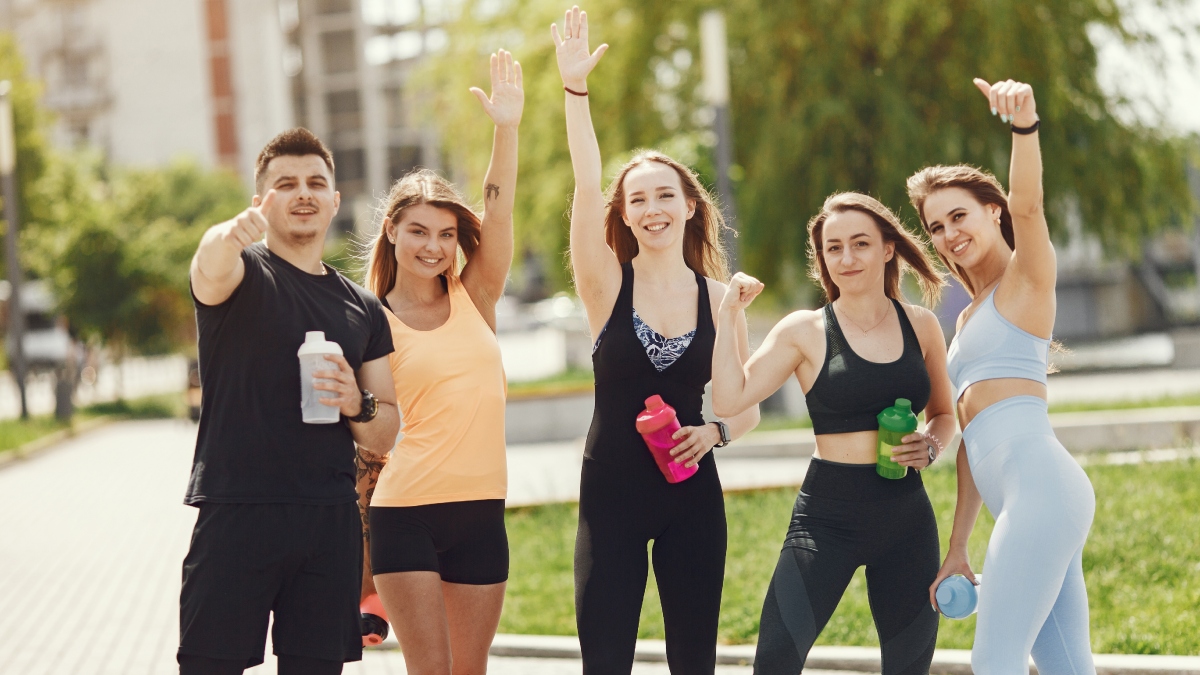Entering your 20s marks a pivotal moment in life's journey, where endless possibilities intertwine with newfound responsibilities. Amidst the excitement of embarking on careers, education, and relationships, it's easy to overlook the importance of health and wellness. However, this decade lays the foundation for lifelong habits that shape vitality and longevity. As you navigate this transformative period, embracing a holistic approach to well-being becomes paramount. Prioritising self-care, both physically and mentally, sets the stage for a vibrant and fulfilling future. Here are 5 tips on how to stay fit and active in your 20s:
Prioritise regular exercise:It is crucial to include physical activity in your daily schedule to ensure good health and fitness. Strive to engage in moderate-intensity aerobic exercise for a minimum of 150 minutes or vigorous-intensity aerobic exercise for at least 75 minutes per week, along with muscle-strengthening activities on two or more days per week. Find activities you enjoy, whether it's running, yoga, dancing, or playing a sport, to make staying active feel like less of a chore.
Practice mindful eating:Nutrition plays a significant role in your energy levels, mood, and overall wellness. A balanced diet full of whole grains, fruits, vegetables, lean meats, and healthy fats should be your main priority. Be mindful of portion sizes and avoid excessive consumption of processed foods, sugary snacks, and fast food. Make better decisions and steer clear of impulsive eating by planning and preparing your meals in advance.
Get adequate sleep:Quality sleep is crucial for physical and mental health, yet it's often overlooked in favour of busy schedules and late-night socialising. Aim for 7-9 hours of sleep per night to allow your body to rest, repair, and recharge. Establish a consistent sleep schedule, create a relaxing bedtime routine, and limit exposure to screens and stimulating activities before bed to improve sleep quality.
Manage stress:The demands of education, work, and personal life can lead to increased stress levels, which can take a toll on your physical and mental health. Employ stress-relieving activities in your everyday routine, such as yoga, meditation, deep breathing techniques, or time spent in nature. Prioritise self-care activities that help you relax and unwind, and don't hesitate to seek support from friends, family, or a mental health professional if needed.
Stay hydrated and limit alcohol consumption:Proper hydration is essential for maintaining optimal physical and cognitive function. Aim to drink at least eight glasses of water per day, and adjust your intake based on factors such as activity level, climate, and overall health. Additionally, be mindful of your alcohol consumption, as excessive drinking can have detrimental effects on your health and fitness goals. Stick to moderate alcohol consumption, and consider opting for non-alcoholic beverages or mocktails when socialising.















